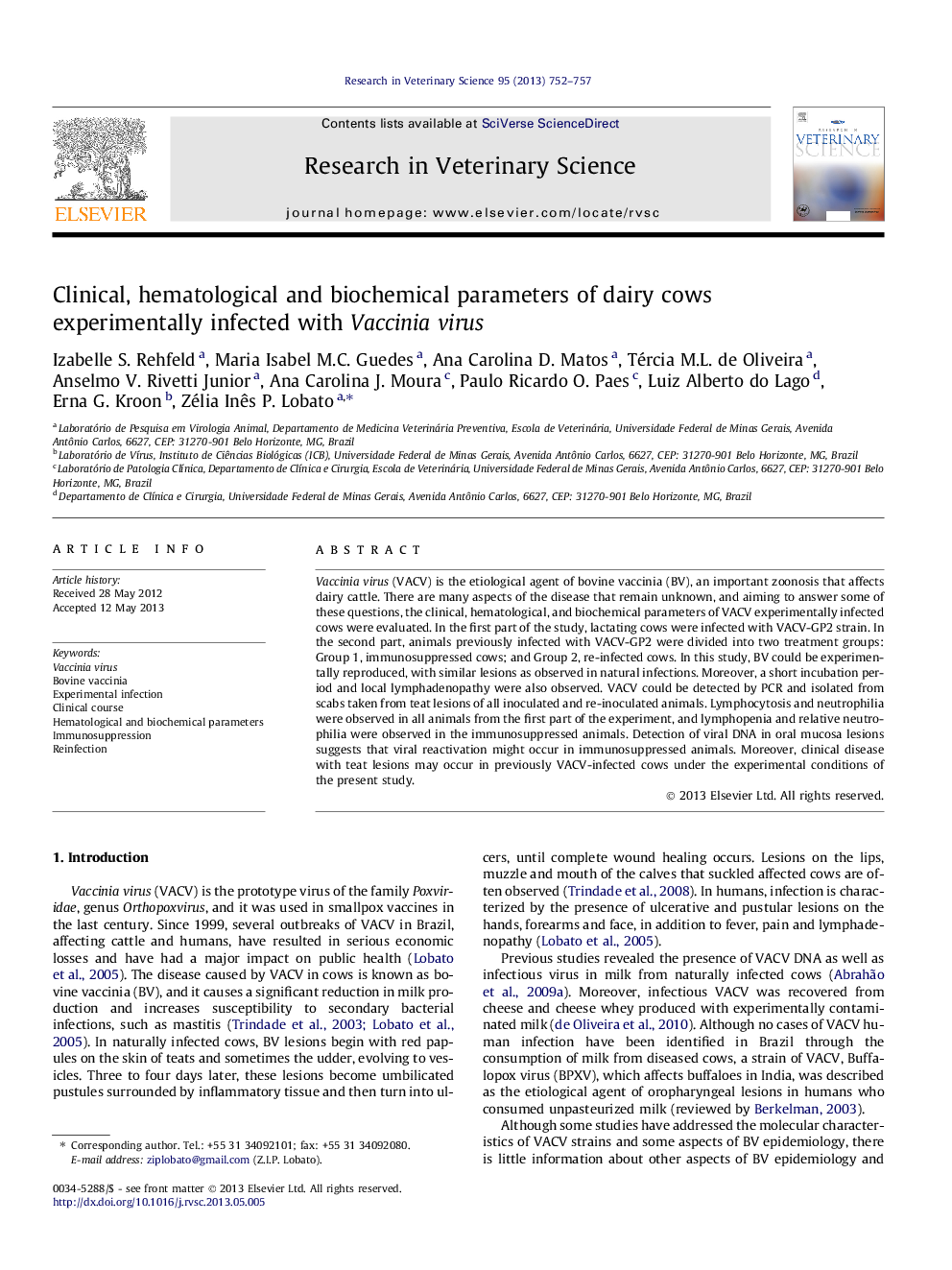| Article ID | Journal | Published Year | Pages | File Type |
|---|---|---|---|---|
| 2455145 | Research in Veterinary Science | 2013 | 6 Pages |
Vaccinia virus (VACV) is the etiological agent of bovine vaccinia (BV), an important zoonosis that affects dairy cattle. There are many aspects of the disease that remain unknown, and aiming to answer some of these questions, the clinical, hematological, and biochemical parameters of VACV experimentally infected cows were evaluated. In the first part of the study, lactating cows were infected with VACV-GP2 strain. In the second part, animals previously infected with VACV-GP2 were divided into two treatment groups: Group 1, immunosuppressed cows; and Group 2, re-infected cows. In this study, BV could be experimentally reproduced, with similar lesions as observed in natural infections. Moreover, a short incubation period and local lymphadenopathy were also observed. VACV could be detected by PCR and isolated from scabs taken from teat lesions of all inoculated and re-inoculated animals. Lymphocytosis and neutrophilia were observed in all animals from the first part of the experiment, and lymphopenia and relative neutrophilia were observed in the immunosuppressed animals. Detection of viral DNA in oral mucosa lesions suggests that viral reactivation might occur in immunosuppressed animals. Moreover, clinical disease with teat lesions may occur in previously VACV-infected cows under the experimental conditions of the present study.
